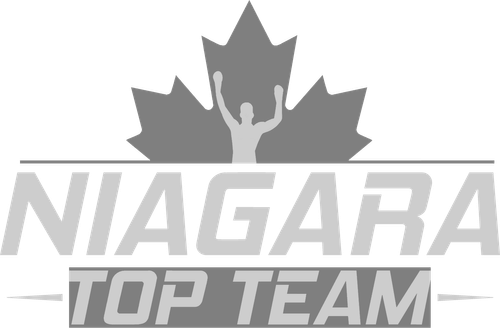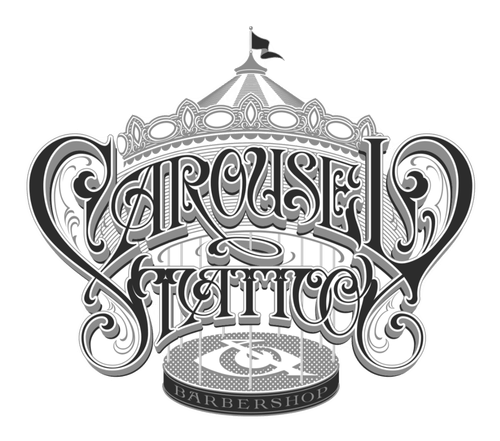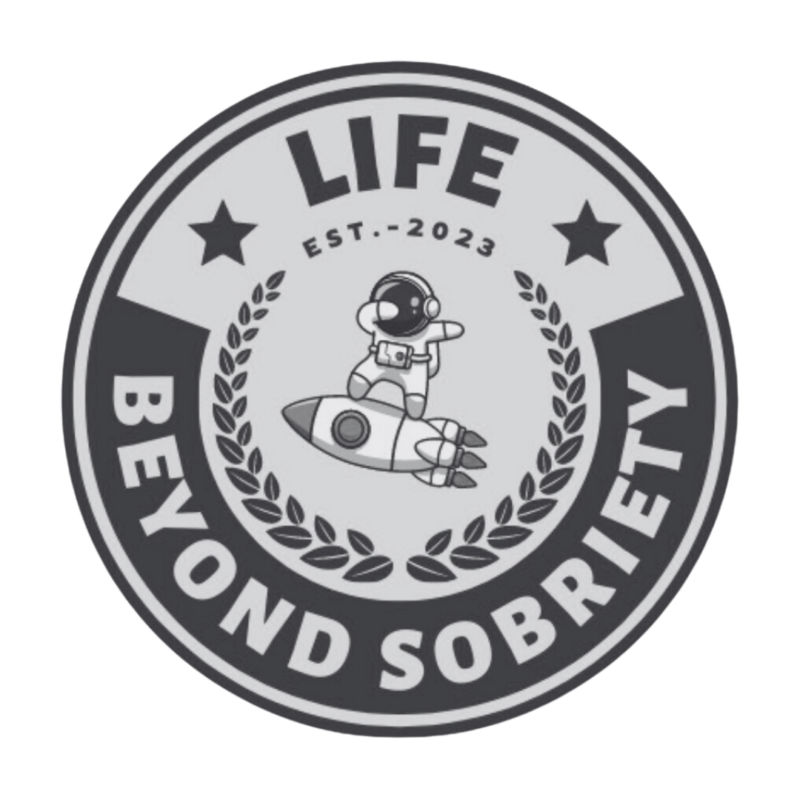Different Approaches to Addiction Treatment
In the diverse landscape of drug treatment centers in Ontario Canada, there are various approaches to treating addiction. These range from traditional methods to innovative, holistic practices that focus on the entire well-being of individuals. The landscape of treatment options can be overwhelming, but it allows for personalized care that can cater to the unique needs of each individual seeking help.
Many centers integrate evidence-based therapies such as cognitive-behavioral therapy and mindfulness, creating a balance between mental and physical healing. These therapies help in reshaping thought patterns, promoting self-awareness, and equipping individuals with tools to manage stress and triggers. Places like Twelve Mile Recovery in Niagara focus on addressing the root causes of addiction, empowering individuals with a holistic approach that incorporates multiple therapeutic disciplines.
Adding martial arts as a therapeutic tool is a prime example of how modern treatment centers are embracing alternative methods. This approach not only enhances physical health but also builds resilience and emotional regulation, crucial facets in the journey of recovery.
Anecdotal evidence from clients reveals the transformative power of these diverse methods, with many expressing gratitude for the comprehensive support they received, which goes beyond just addressing physical addiction. The integration of varied approaches into treatment plans signifies a shift towards more personalized and effective addiction recovery solutions.
Inpatient vs Outpatient Treatment Options
When choosing drug treatment centers in Ontario Canada, a crucial decision involves selecting between inpatient and outpatient services. Each option has its own set of benefits and considerations that cater to different needs and circumstances. Understanding these can be key to selecting the most suitable treatment approach.
Inpatient treatment requires individuals to stay at the facility for a period of time, providing an environment that is free from external triggers and stressors. This immersive approach allows for intensive care and support, which can be particularly beneficial for individuals with severe addiction issues or those who have relapsed multiple times. Centers like Twelve Mile Recovery offer comprehensive residential programs with a focus on holistic recovery, providing a sanctuary for healing.
Alternatively, outpatient treatment offers flexibility for those who have responsibilities that cannot be put on hold, such as work or family commitments. These programs typically involve regular therapy sessions without the need for overnight stays, allowing individuals to maintain their daily routines while receiving support. Although less immersive than inpatient programs, outpatient services can be effective for individuals with milder addictions or those transitioning from inpatient care.
The choice between inpatient and outpatient care should be guided by personal circumstances, the severity of addiction, and the individual’s support network. Consulting with professionals at drug treatment centers in Ontario Canada can help in making an informed decision that aligns with one’s recovery goals.
Holistic Treatment Methods
Many drug treatment centers in Ontario Canada, including Twelve Mile Recovery, are embracing holistic methods as part of their treatment repertoire. Holistic approaches aim to heal the body, mind, and spirit, offering a more comprehensive recovery experience. This perspective recognizes that addiction is not purely a physical condition but one that affects every aspect of a person’s life.
Components of holistic treatment often include mindfulness practices, yoga, and art therapy. Incorporating these elements encourages self-reflection, self-expression, and stress relief, which are essential for sustainable recovery. The emphasis is on nurturing the whole self, helping individuals rediscover their strengths and passions while addressing the emotional wounds that often accompany addiction.
Physical activities such as martial arts or fitness programs are also integral to holistic treatment plans. These not only improve physical health but also boost confidence and self-discipline, qualities that are instrumental in maintaining sobriety.
Importance of Trauma-Informed Care
Trauma-informed care has become a cornerstone in the treatment philosophy of drug treatment centers in Ontario Canada. This approach recognizes that many individuals struggling with addiction have experienced trauma in their past, which can play a significant role in their substance use.
At Twelve Mile Recovery, trauma-informed care means creating a safe and supportive environment where clients feel understood and validated. It involves training staff to be sensitive to the signs of trauma and integrating therapeutic tools that address these experiences. By doing so, treatment not only focuses on overcoming addiction but also on healing the underlying trauma that might be contributing to it.
Clients often report that being in a trauma-informed setting has allowed them to feel more at ease and open during their recovery journey. This approach fosters trust and collaboration between clients and their care providers, which is essential for effective treatment outcomes.
The emphasis on trauma-informed care aligns with broader shifts in addiction treatment strategies, emphasizing compassion, understanding, and personalized care.
Role of Peer Support in Recovery
Peer support is a pivotal component of the recovery process, and many drug treatment centers in Ontario Canada integrate this into their programs. Peer support involves individuals who are in recovery or who have successfully overcome addiction offering guidance, empathy, and support to those currently undergoing treatment.
At Twelve Mile Recovery, peer support is viewed as an invaluable part of the treatment experience. By sharing their personal journeys, peers can offer hope and motivation, demonstrating that recovery is possible. This connection can be particularly powerful, as individuals connect with others who truly understand their struggles.
These relationships foster a sense of community and belonging, reducing feelings of isolation and stigma often associated with addiction. Peer support also provides an additional layer of accountability and encouragement, helping individuals stay committed to their recovery goals. The shared experiences and collective wisdom within peer groups are a testament to the power of human connection in overcoming addiction.
Integrating Therapy and Physical Wellness
Integrating therapeutic practices with physical wellness is a strategy embraced by several drug treatment centers in Ontario Canada, including Twelve Mile Recovery. This dual emphasis ensures that individuals not only heal mentally and emotionally but also gain physical strength and vitality.
Treatment plans typically include evidence-based therapies such as cognitive-behavioral therapy, alongside physical wellness activities like yoga, martial arts, and fitness programs. This combination fosters a holistic sense of well-being, empowering individuals to feel stronger and more balanced in their recovery journey.
Physical activities help individuals release pent-up energy and stress while boosting endorphins and promoting overall health. When paired with therapy, these activities help in building a foundation for long-term recovery and personal growth.
Personalized Treatment Plans
One of the hallmarks of effective drug treatment centers in Ontario Canada is their ability to tailor treatment plans to the individual needs of each client. Personalized plans ensure that treatment is relevant and effective, making it more likely that individuals will engage fully in the recovery process.
Twelve Mile Recovery excels in crafting individualized plans by considering factors such as the type and severity of addiction, personal history, and individual preferences. This bespoke approach allows for flexibility and adjustment in response to the client’s progress, ensuring that they receive the right level of care at every stage.
Personalized treatment plans extend beyond therapy, incorporating nutritional guidance, fitness programs, and even creative therapies that match the interests and needs of the individual. This comprehensive care approach not only addresses the addiction but also promotes overall health and personal fulfillment.
Accessibility and Support Networks
Another important aspect of drug treatment centers in Ontario Canada is the focus on accessibility and building strong support networks. Accessibility encompasses financial considerations, geographical location, and the availability of services, ensuring that individuals from various backgrounds can access the help they need.
Twelve Mile Recovery, among other centers, offers intervention services and virtual treatment programs to reach individuals who may not be able to attend in-person sessions. These efforts reflect an understanding that recovery must be accessible and adaptable to fit different lifestyles and challenges.
Support networks, including family counseling and alumni programs, are integral to maintaining sobriety. These networks provide ongoing encouragement and resources, helping individuals sustain their recovery long after they leave the treatment facility. Establishing a solid network of support is vital for long-term success, enabling individuals to navigate the ups and downs of post-treatment life with confidence.
How much does rehab cost in Ontario?
The cost of rehabilitation in Ontario can vary significantly depending on several factors, such as the type of facility (private or public), the duration of the program, and the services offered. Generally, public rehab centers are funded by the government and, therefore, may offer services at little to no cost to residents. However, these centers often have long wait times. On the other hand, private rehab facilities tend to provide quicker access to treatment but can range from thousands to tens of thousands of dollars for comprehensive programs. Twelve Mile Recovery, for instance, offers tailored plans that reflect the needs of the individual, which can influence pricing. They emphasize a holistic approach that combines therapy, physical wellness, and emotional support, aiming to provide a transformative experience worth the investment.
What is the wait time for rehab in Ontario?
Wait times for rehab in Ontario can be a significant barrier to accessing timely care, especially in publicly funded centers where demand often exceeds availability. It’s not uncommon for individuals seeking treatment to face wait times of several weeks or even months. However, private facilities like Twelve Mile Recovery often have more immediate availability, providing a vital alternative for those in urgent need of help. The organization’s comprehensive approach caters to individual needs, reducing wait times so that people can embark on their recovery journey without delay. Prompt access to treatment is crucial, as it can significantly impact an individual’s motivation and readiness for change.
What is the Canadian Centre for addicts?
The Canadian Centre for Addicts is a facility or organization that aims to provide support, resources, and treatment options for individuals struggling with addiction across Canada. Although there might be several organizations with similar names, they typically offer services like counseling, detox programs, and rehabilitation to help individuals overcome substance abuse. At Twelve Mile Recovery, a similar ethos is embraced with a focus on holistic healing and tailored treatment plans that address the multifaceted nature of addiction. They offer a nurturing environment deeply rooted in personal understanding and professional excellence, supporting clients through every step of their recovery process.
Do you pay for rehab in Canada?
In Canada, the cost of rehab varies based on the type of facility and available funding. Public rehab centers, funded by provincial health care systems, typically offer services at no direct cost to the individual. These centers are often accessible to those in need, but they may require a referral and have longer wait times due to high demand. Private rehab facilities, like Twelve Mile Recovery, require payment for their services. The cost reflects the specialized and often immediate care that is tailored to the individual’s needs, offering a range of therapies and holistic treatments not always available in public systems. The investment in a private facility can yield significant benefits in terms of personalized care and quick access to treatment.
What are the benefits of holistic treatment methods at Twelve Mile Recovery?
Holistic treatment methods at Twelve Mile Recovery offer numerous benefits by addressing the whole person–mind, body, and spirit–rather than just the symptoms of addiction. This approach can include practices like mindfulness, yoga, art therapy, and martial arts, all aimed at nurturing self-awareness and emotional resilience. Such methods empower individuals to reconnect with their interests and strengths, fostering a sense of purpose and belonging. By integrating these practices, Twelve Mile Recovery helps clients develop coping strategies and self-discipline, essential for sustaining long-term recovery. Ultimately, the holistic approach is designed to cultivate healing and growth, equipping individuals with the tools they need to lead fulfilling lives post-treatment.
How does peer support enhance recovery at Twelve Mile Recovery?
Peer support is a cornerstone of recovery at Twelve Mile Recovery, where individuals in recovery or who have overcome addiction share their experiences and encouragement. This form of support fosters a sense of community and belonging, which is crucial in combating the isolation often associated with addiction. Through shared experiences, peers provide hope and motivation, showing that recovery is achievable. These connections also offer accountability and an additional layer of encouragement, helping individuals stay committed to their recovery goals. Peer support enriches the therapeutic process by creating a supportive environment where clients feel understood and accepted, ultimately enhancing their recovery journey and contributing to long-lasting sobriety.
Why is trauma-informed care important in addiction treatment at Twelve Mile Recovery?
Trauma-informed care is vital in addiction treatment at Twelve Mile Recovery because it acknowledges that past trauma often plays a significant role in substance use disorders. By creating a safe, supportive environment where clients feel validated and understood, Twelve Mile Recovery helps individuals address the root causes of their addiction. This approach involves training staff to recognize trauma symptoms and implement therapeutic strategies to aid healing. By focusing on underlying trauma, Twelve Mile Recovery not only addresses addiction but also promotes overall well-being, allowing clients to heal emotionally and mentally. This comprehensive approach leads to more effective and sustainable recovery outcomes, empowering clients to rebuild their lives with greater resilience and confidence.
Resources
- Centre for Addiction and Mental Health – A leading mental health and addiction research center in Canada.
- Substance Abuse and Mental Health Services Administration – U.S. government agency providing resources and information on addiction treatment.
- National Institute on Drug Abuse – Research and resources on drug abuse and addiction.
- National Alliance on Mental Illness – Organization providing support and advocacy for individuals and families affected by mental illness.
- American Psychiatric Association – Professional organization for psychiatrists offering resources on mental health and addiction.












